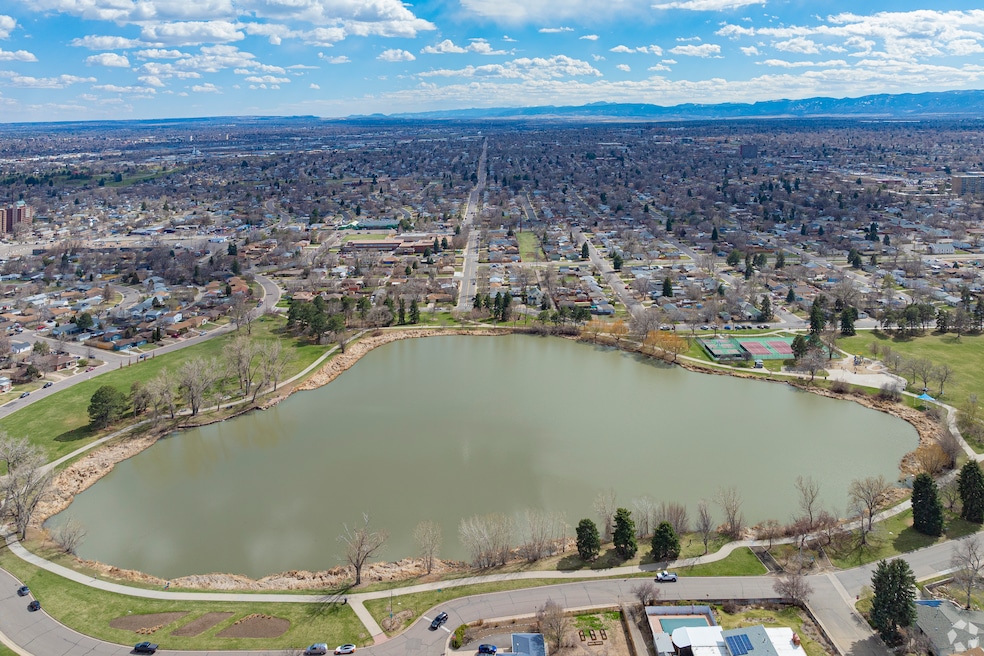In Colorado, which ranks as one of the top states for homeowners paying HOA fees, legislators have revamped laws governing HOA foreclosures to protect homeowners.
Colorado is the state with the second-highest percentage of homeowners paying HOA fees, with 42.2% of residents contributing, according to U.S. Census data — just behind Florida, at 44.3%. In recent years, there has been growing concern about HOA foreclosures across Colorado, prompting the state to pass two laws aimed at making the process more transparent and equitable.
“Over the last few years, the Colorado General Assembly has made important changes to ensure that parties to a foreclosure dispute, no matter the side of the dispute that they are on, do not abuse the systems afforded to them,” said David L. Donnelly, the education, communication and policy manager at the HOA Information and Resource Center in Denver.
Donnelly pointed to the most recent law, which went into effect in October.
“This law mandates that associations report certain information to the HOA Information Center as part of their registration with our office,” he said. “The HOA Center has only recently begun collecting this information, [but] over time, the information collected might help better understand the effect that foreclosures and delinquency rates are having in Colorado communities.”
State closing in on 100 complaints a year
According to data from the HOA Information and Resource Center, as of Nov. 11, there were 90 complaints related to excessive assessments, fees, fines, collections or foreclosures. There were 96 in 2024 and 67 from August to December 2023.
Donnelly said when homeowners purchase a home in a common interest community like an HOA, they are entering into an agreement with that association.
“One of the fundamental aspects of HOA life is the obligation to pay an assessment, also commonly referred to as dues,” he said. “When a homeowner does not pay those dues, the homeowner can subject themselves to the risk of being foreclosed by the HOA.”
Lawyer Robert Schifferdecker of Robinson & Henry said people are surprised that this is a risk of not paying their fees.
“The new law is really focused on making sure HOAs give proper notice and make sure homeowners understand what the consequences can be,” Schifferdecker said.
Laws require transparency and communication
To improve transparency, the new law requires HOAs to report annually to the state on delinquent accounts, judgments, payment plans and foreclosure actions.
Additionally, before an HOA can foreclose on a property to recover unpaid dues, collection costs or attorney fees, it must fully comply with Colorado laws and its own governing documents, according to the bill. If an HOA fails to meet these requirements, a court can pause the foreclosure to give them time to come into compliance and consider this when deciding attorney fees.
The law also requires HOAs to obtain updated contact information from residents on a regular basis.
If a homeowner isn’t paying fees, HOAs need to be sure to include the following in their notices:
- A statement informing the owner that they can request a ledger of the amount owed, which must be provided within seven business days.
- A warning that unpaid dues could lead to a lien, foreclosure or a loss of equity.
- A link to resources that the HOA Information and Resource Center provides.
Additionally, the law states that HOAs must also give homeowners at least 30 days' notice before starting the foreclosure process, explaining the intent, the risks and available resources. Within five business days after filing for foreclosure, the HOA must notify the owners that they can pay off the debt or request that the court delay the auction. Homeowners may request a court-ordered delay of up to nine months to sell the property at fair market value, with the proceeds held in escrow until the court decides how to distribute them. “I think the new law wants to make it very clear that this is a right on the associations’ part to be able to pursue this option, but it needs to be a last resort-type thing,” Schifferdecker said. Another law addressing the issue was passed in 2022, Donnelly said.
“It requires that homeowners can designate both a point of contact to receive notices from the association but also requires an association to provide notices in a language other than English if the homeowner so designates,” he said.
'An extra step' that's needed
Donnelly said there are many lawmakers in Colorado who want to continue addressing HOA issues, but there has been a mixed reaction from the public.
“Just like any contentious issue, there are those that believe that the current laws are doing too much, while others believe that the laws are not doing enough,” he said.
Being required to use additional methods helps ensure homeowners receive notices, according to Schifferdecker. Foreclosure or placing a lien isn’t guaranteed to recover dues, so if all parties can resolve the issue earlier and collect what’s owed without going through such drastic measures, it’s better for everyone involved, he added.
“I think from an HOA perspective, most of them are understanding [that] this is an extra step, but this is an extra step that looks better for everyone because they're doing the best they can,” Schifferdecker said.
The future of HOA foreclosure in Colorado
"Foreclosures in common interest communities will continue to be an important tool for communities across Colorado,” Donnelly said.
But HOA boards should be more careful about how and when they use them, he said.
Both Donnelly and Schifferdecker encourage homeowners to become more educated on state policies and the rules governing their HOAs.
“Read everything you get from your HOA,” Schifferdecker said. “Know that declarations are governing documents within an HOA. They control things, and they do have binding authority over what you can and can't do with that property — and a part of that is paying those dues.”

